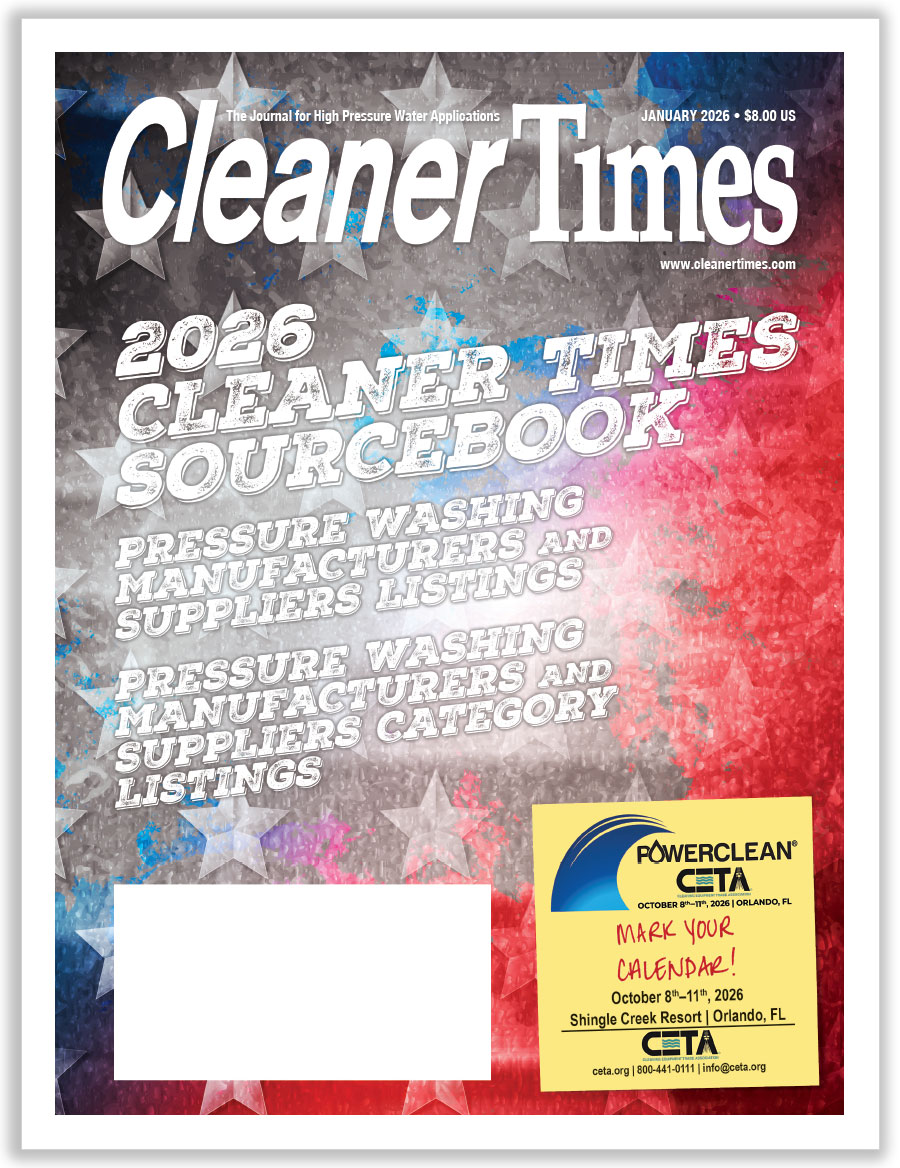
CETA Edge
All Members of the Industry Are Welcome
By Diane M. Calabrese / Published March 2019

C
eta Membership
Start with the many outstanding colleagues—very likely sometime competitors, too. That’s just one reason for belonging to the Cleaning Equipment Trade Association.
Tangible and intangible benefits accrue in so many ways from CETA membership, so rank ordering them is not easy. But why even try? The sum of good things is impressive enough.
“There are so many important benefits of being a CETA member that it is impossible to pick a single most important one,” says R. Calvin Rasmussen, CEO of Royce Industries L.C. in Salt Lake City, UT. “Therefore, if required to pick just one, it would be the benefit of relationships.” And Rasmussen emphasizes relationships.
“Over many years, we have been able to build numerous business connections with fellow distributors, manufacturers, suppliers, and many more,” says Rasmussen. “This has helped us become much more professional and profitable. It has helped us grow from a garage-based family business to where we find ourselves today with five locations spanning four states. Frankly, many of the connections have truly migrated from ‘business connections’ to true friends.” Rasmussen puts another emphasis on true friends.
“Our company joined CETA in 1990,” explains Rasmussen. “We as a company were new to cleaning equipment sales and as a result had a ton to learn. We believed being part of an association of like-minded people would be key to that learning.”
CETA certification and networking are two of the current programs that Rasmussen cites as wonderful benefits. He explains he is a big fan of the organization and all it has to offer.
Aqua Engineers in Austell, GA, has been a member of CETA for more than 20 years, says Jessica Gentry, office/sales manager at the company.
“We continue to renew our membership each year for the value that CETA provides,” says Gentry. “The most important benefit of CETA is the ability of members to share information with each other.”
That sharing comes in instructional and discussion-format settings. “I continue to gain knowledge and information during the seminars and roundtables on topics like marketing, new regulations, accounting and inventory software, hiring techniques, and more,” explains Gentry.
Educational sessions at CETA meetings have an immediate way of linking members with cross bridges that strengthen all. They also are the starting point for a relay of important information to team members at home bases.
The collaborative spirit of members bolsters the opportunities for learning through CETA. Recalling her own experience taking information from meetings, Gentry focuses on how useful it all is. “I was able to take these topics back to the office and implement them into our day-to-day business,” she says.
There’s also the ability to reach out for help and advice. “If I am working on a project that might not be in my field, I have the ability to collaborate with someone who has encountered the issue before, whether that someone is a manufacturer, supplier, or distributor,” says Gentry. And she explains “the ever-increasing industry knowledge” is a benefit that genuinely just keeps accruing.
“An often-overlooked benefit to CETA members, in my opinion, is benchmarking,” says Gentry. “Last year, our company submitted our paperwork, and the results showed how we compare against the industry.”
The thoroughness of the benchmarking analysis gives a company robust feedback. And that’s feedback that can be used to make changes and gains.
“The in-depth report showed us where we excelled and where improvements were needed,” says Gentry. “It provides a new way to look at your inventory and expenses, so that you can increase your profits.”
Taking advantage of benchmarking is something Gentry recommends to all. “I encourage others to participate in benchmarking,” she says. “The more businesses that participate, the better insights everyone receives.”
CETA has much to offer. “Other benefits that I think are often overlooked are the shipping rates and credit card processing fees that are negotiated through CETA on behalf of their members,” says Gentry.
Growing Companies
The CETA website at www.ceta.org includes a page that lists the many benefits to members. The transcendent benefit to membership is being part of a group that promotes professionalism.
Not only do members of the organization share an occupational niche, but they also have a commitment to ensuring that all the skills and expertise they bring to the niche are leading edge and current. Irrespective of how disciplined and diligent a distributor, supplier, or manufacturer is, it can be difficult to keep pace with changes that affect the industry.
Consider the significance of being able to rely on the technical committee. Instead of going it alone in working to meet all expectations of California’s Proposition 65, CETA members can tap expert advice from their technical committee. Similarly, members can look to CETA certification programs when ensuring their employees have the necessary DOT, OSHA, and hazmat training.
Discounted shipping rates, alerts on lost or stolen equipment, and scholarships available for family members and employees are among the many other member benefits. New benefits this year include a credit card processing discount program and performance standards for certification.
Quiet currents ripple among CETA members every day: A conversation is recalled. A seminar brings assurance of a correct approach. A distributor is contacted by someone wanting a customized solution that a distributor colleague can better provide and a referral is made. A manufacturer is looking for an addition to a design team and asks for recommendations. A supplier wants to join forces with a supplier in another region and talks to others about possibilities.
Or, an email is sent or a phone call is made to ask a colleague whether he has any insight into a pending regulation. A strong organizational response can persuade regulators to recraft particular rules. Often regulators need more information about a particular method or type of equipment. Organizational-level response to pending regulations from government entities may not carry more weight than individual responses. Even so, a strong organizational response can persuade regulators to recraft particular rules.
At the same time, belonging to an organization that has the committee structure ready to respond to requests enables a member to relay information and concerns to the committee so that it can become part of a group response. It’s a time saver.
“Thought leadership” is a term that has popularity in the corporate world. It’s a shorthand for the individuals who inspire others to excellence through a combination of modeling the way to do things well and do them better still, creativity, thirst for learning, and expertise. The term also applies to members of professional organizations. CETA members are very much thought leaders.
CETA’s 2019 membership committee is chaired by Greg Sprunk with Superior Equipment Cleaning Inc. in Phoenix, AZ. Mike Tonies with Hydra-Flex in Eagen, MN, and David Presley with Hydro-Chem Systems Inc. in Caledonia, MI, are members.
Sprunk joined the membership committee in 2018, volunteering to serve because he was so impressed by the value of being a CETA member. He has now taken his efforts to the next level by becoming the chairman of the committee.
Questions and comments about membership in CETA can be directed to membership committee members or to the CETA office at info@ceta.org. With its associate, distributor, manufacturer, and supplier member categories, CETA welcomes all members of the industry.





